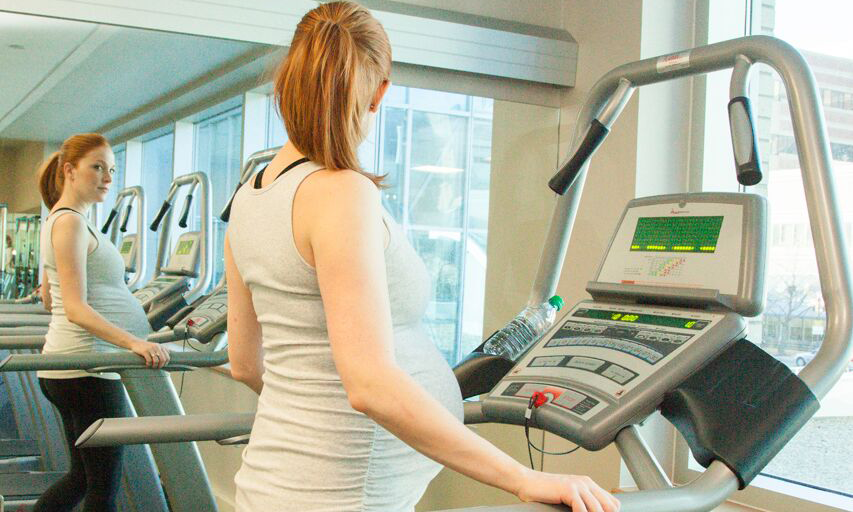Mobile Menu
- Education
- Faculty
- Research
- News & Events
- Divisions
- Equity, Diversity & Inclusion
- About Us

 Finding the right amount of physical activity for a pregnant woman can sometimes be confusing for both patient and physician, however a new guide is hoping to make this clearer for all Canadians. The 2019 Canadian Guideline for Physical Activity throughout Pregnancy has a goal of educating pregnant women, as well as the medical and physical fitness professionals assisting them, about the best route for prenatal activity. This guide was prepared and reviewed by obstetrical professionals from across Canada and the world in order to best prepare pregnant women to care for themselves and their unborn child(ren). Among these professionals were Dr. Milena Forte and Dr. Karen Fleming with the University of Toronto's Department of Family and Community Medicine.
Finding the right amount of physical activity for a pregnant woman can sometimes be confusing for both patient and physician, however a new guide is hoping to make this clearer for all Canadians. The 2019 Canadian Guideline for Physical Activity throughout Pregnancy has a goal of educating pregnant women, as well as the medical and physical fitness professionals assisting them, about the best route for prenatal activity. This guide was prepared and reviewed by obstetrical professionals from across Canada and the world in order to best prepare pregnant women to care for themselves and their unborn child(ren). Among these professionals were Dr. Milena Forte and Dr. Karen Fleming with the University of Toronto's Department of Family and Community Medicine.
"This guideline represent a foundational shift in our view of prenatal physical activity," said Dr. Forte, "from a recommended behaviour to improve quality of life to a specific prescription to reduce pregnancy complications and optimize health."
The guideline is the first to highlight that prenatal physical activity is a therapy that can reduce pregnancy complications across the lifespan of two generations. The study states that "following the guideline can reduce the risk of pregnancy-related illnesses such as depression by at least 25%, and the risk of developing gestational diabetes, high blood pressure and preeclampsia by 40%." It is therefore recommended that "pregnant women should accumulate at least 150 minutes of moderate-intensity physical activity each week over a minimum of three days per week; however, being active in a variety of ways every day is encouraged."
Moderate intensity exercise for this amount of time has a number of benefits including:
Contrary to popular belief, moderate intensity exercise in pregnancy is not associated with increased rates of miscarriage, preterm birth, stillbirth, neonatal death, preterm/pre-labour rupture of membranes, neonatal hypoglycemia, birth defects, or low birth weight.
Currently, less than 15% of women meet the recommendation for 150 min/wk of moderate activity throughout pregnancy. As benefits were seen with less frequent and intense exercise, pregnant women should be encouraged to be active at any level. It is recommended, however, that women speak with their medical professional about their own specific cases, including medical restrictions.
The recommendations by this guideline include:
To read more from this guideline, click here.
_____________________________________________________________
Don't want to miss a post? Follow us on social media for more news!
FACEBOOK | INSTAGRAM | TWITTER
If you would like to be a guest blogger, please contact us at obgyn.communications@utoronto.ca.
